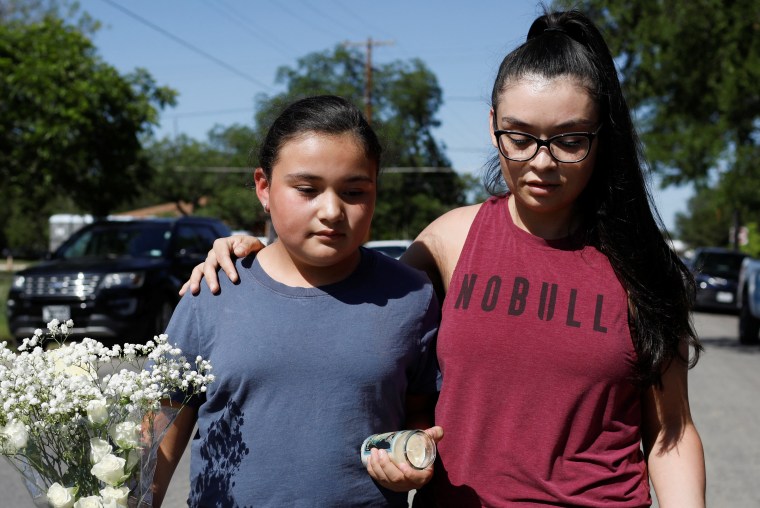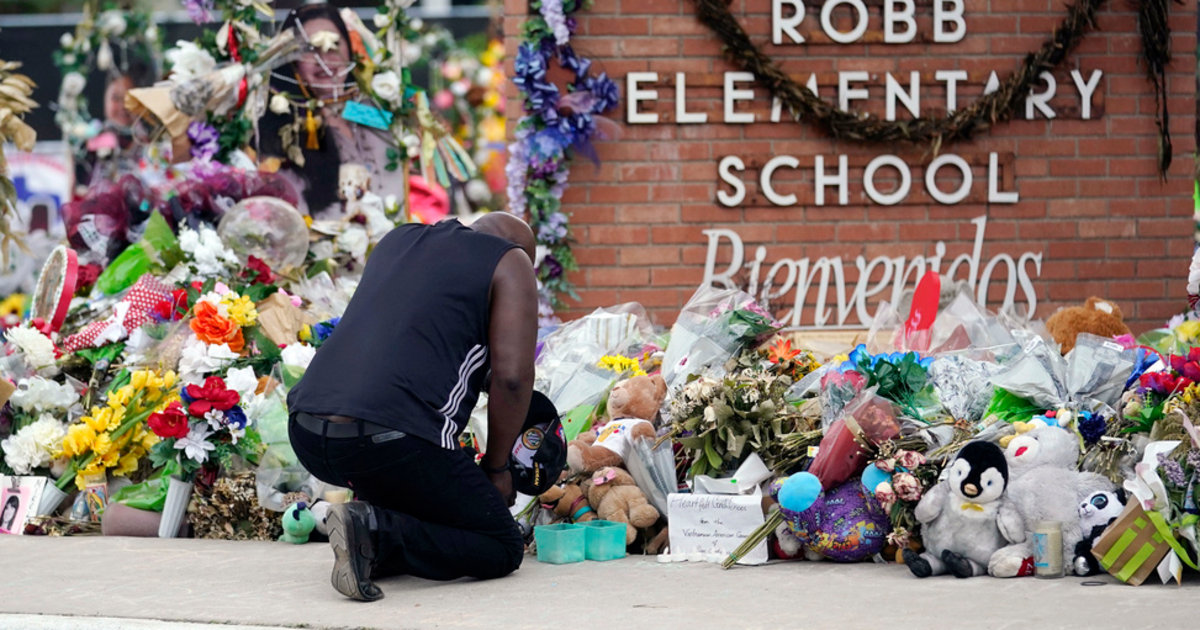The massacre at a Uvalde school in Texas that left 19 children dead and two teachers murdered has terrified parents, caregivers and students in the United States, who are once again faced with talking about school violence.
Several schools in the country strengthened their security on Wednesday, a day after the tragedy, however the uncertainty that this could happen at any time raises several questions.
[Follow our minute-by-minute coverage of the Texas massacre]
Dr. Barbara Robles-Ramamurthy, child psychiatrist and founder of Teku Community – an online community that supports the mental health of children and families – spoke with Noticias Telemundo and shared keys to help the little ones go through the emotions they may experience.
1. Make sure you as an adult are okay
The first thing the expert recommends is to try to be in a state of healthy mental health to "be able to meet the needs of children."
Then, it is best to sit down and listen to determine how much the child knows, how he feels about it, and what questions he has.
"We don't want to bombard them with information that they may not want, need or have the ability to process," he says.
Children between 8 and 10 years old, almost all of them Hispanic: the faces of the victims of the Texas school shooting
May 25, 202201:11
2. Speak the truth but take care of the details
Take into account the age of your child or minor under your care to explain the topic in detail.
"We have to be honest about what we know and what we don't understand yet," says the doctor.
The idea is not to invent a situation to explain the fact.
Most likely, children have already learned something, but it is very important to ask them what information they have and what they want to know or what they are worried about.
A girl studying at Robb Primary School is accompanied by her mother to bring flowers the day after a man killed 19 children and two teachers.REUTERS
You can reinforce the accompaniment by saying something like:
"I am always here to answer you and to help you understand what you are listening to at school"
.
If they are too young to hear details, you can simply tell them that there was a tragedy in which children died inside the school.
3. Why are weapons dangerous?
The attacker entered with a rifle which he easily accessed and this has been one of the most talked about topics in the news.
[Beto O'Rourke and Greg Abbott clash over gun control after Texas school shooting]
If you must have a dialogue with your child on the subject, Dr. Robles asks you to take into account how much children know about these artifacts or these types of events.
If the child has heard or is talking about weapons, it can be an opportunity to have a conversation about "why these weapons do not belong in our communities because of the level of danger they pose and why a person like us should not have access to them says the expert.
After the massacre in Texas, many parents face the anguish of leaving their children alone at school
May 25, 202201:54
4. What to tell him if he is afraid?
If the information the child received puts him in a scary situation, you should make him understand that it is normal and that you also feel the same way, as a way of showing empathy.
You can address them by saying:
"the fact that we are afraid means that we are human,
that we deserve and have the right to safety and to feel safe in our schools and in our homes," says the expert.
It can also reinforce the idea that you support them and that if they need help they will get it.
How to prevent children from feeling afraid to go to school?
An expert answers
May 25, 202204:58
5. Police in schools
Several schools in the country reinforced the police presence, which can also raise many questions, because adults have different views about the authorities.
The psychiatrist believes that this could be an opportunity to ask them what they think, if they feel safe when they see the police or not.
The idea is to navigate the conversation objectively and find out if these types of strategies make them feel better.
In this way children's voices can be raised to the school or relevant authorities.
[Artists and Celebrities Call for Action to End Gun Violence Following Uvalde Elementary School Massacre]
"Many times when these experiences happen, the voices and opinions of our sons and daughters are lost, so this is an opportunity," says Dr. Robles.
After massacre in Texas, schools in the United States increase security actions
May 25, 202202:30
6. Be informed but limit exposure
Finally, the specialist assures that "it is time" for adults or caregivers to be informed and educated to have these types of conversations and situations.
But if you think you don't have the tools to talk about it, you can seek help from another adult at school or elsewhere.
"Yes, it is time for each of us to take that responsibility."
Another expert consulted by the Los Angeles Times suggests limiting the exposure of minors to social networks and the news.
"Every time (children) watch the news, they feel like it's a new event rather than a repeat of the same," Carol Vidal, who is also a child psychiatrist, told the publication.
The recommendation is also addressed to adults who should set an example for minors.














